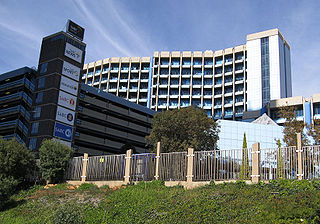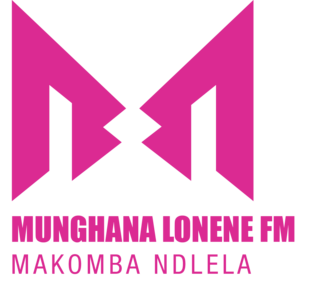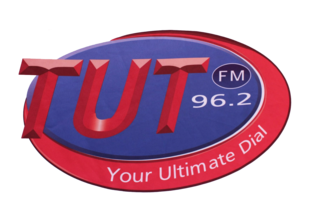External links
| Campus | ||
|---|---|---|
| Student life | ||
| People | ||
| Related | ||
Rhodes Music Radio, or RMR as it is more commonly known, is the campus radio station of Rhodes University. It was also the first non-State broadcaster in South Africa's history to be allowed to broadcast legally. The pioneering broadcasts of RMR's FESTIVAL FM were reported worldwide in 1991 as global media highlighted this 'first breaking' of the half-century monopoly on broadcasting exercised by the South African Broadcasting Corporation (SABC).
The station was formed in 1981, at which point it broadcast only across Grahamstown's Rhodes University campus. One of the founding music presenters at the station, David O'Sullivan, is today one of South Africa's most respected radio talk show hosts as a presenter on Talk Radio 702. Another notable personality to emerge from RMR's early days includes South African television and radio personality Jeremy Mansfield.
More recently the station has produced a string of household names in South African television, radio and journalism including former CNN sports presenter Graeme Joffe, 5FM DJs Nicole Fox, Jon Savage and Mlungisi Dikulu, SABC news and talk presenter Sherwin Bryce-Pease, SuperSport presenter Leigh-Ann Paulick, Talk Radio 702 and Daily Maverick reporter Stephen Grootes. Recently the station compiled a more complete list of its alumni, available on its website.
1981: RMR begins narrowcasting to the Rhodes cafeteria on 1 August, later expanding to the residences on campus.
1987: 16 University residences linked to the narrowcasting system.
1988: Test transmissions of Rhodes Educational Radio (RER) introduced.
1990: 5 RMR presenters (the wider team included Station Manager Alex McGowan, Reuben Goldberg, Andrew Bolton, Kyle Hannan and Tove Kane) set a record for non-stop broadcasting by a campus station (336 hours). The last minutes are broadcast live on Capital Radio.
1990: Breakfast presenter Kyle Hannan wins national campus DJ competition at the Camel Pyramid of Light in Johannesburg's Ellis Park stadium (just ahead of Mark Gillman who later went on to national fame on national pop station 5FM).
1991, June: RMR granted permission to broadcast in conjunction with Radio 5 at the Grahamstown Festival of Arts (10-day temporary licence for a station named "Festival-FM"). Broadcasting took place on 89.7 MHz FM for a 15-kilometer radius, with the target audience being visitors to the Festival as well as Grahamstown residents. The licence was the first of its kind in South Africa and broke the SABC's half century long monopoly on legal broadcasting. Station Manager at the time was Kyle Hannan.
1992, August: RER becomes Rhodes Topical Radio.
1993, March: RMR broadcasts the last nine days of a marathon record breaking attempt in aid of Child Welfare. Breaking the record set by RMR in 1990, 5 presenters broadcast around the clock for a total of 17 days (394 hours). Target audience for the last nine days is the entire Grahamstown community. Frequency and range: 88 MHz, 15 km radius.
1993, June: Festival FM broadcasts again, on the same frequency and range, during the National Arts Festival.
1994, February/March: RMR is one of 15 stations granted a temporary broadcast licence. Frequency and range: 88 MHz, 15 km radius.
1994, June: RMR's application for a temporary licence to broadcast during the National Arts Festival is rejected by the Independent Broadcast Authority (IBA).
1995, March: RMR successfully applies to the IBA for a temporary, one-year community licence.
1995, May 17: RMR takes to the airwaves 24 hours a day as a fully fledged community broadcaster.
1995, August: Rhodes Topical Radio (RTR) is integrated into RMR, as the RMR Talk department.
1996, February: RMR successfully applies to the IBA for a temporary, one-year community licence. 1997, February: RMR successfully applies to the IBA for a temporary, one-year community licence.
1998, January: RMR applies to the IBA for a permanent, four-year licence. The station is granted a temporary, one-year community licence, pending the four-year licence hearings.
1999, February: RMR successfully applies to the IBA for a temporary, one-year community licence.
2000, April: Following a hearing by the IBA, RMR is finally granted its first four-year licence.
2002, February: An initiative started by former Station Managers' Marisa Dean, Adelé Mostert and Sean Bosman sees the employment of RMR's first Full Time Station Manager - Mike Smurthwaite.
2002, February 8: RMR hosts a 101-hour DJ marathon as a fundraising effort for local charities, a simultaneous broadcast happens, RMR is heard live on Radio 702 for 15 min.
2004, August: RMR successfully renews its four community broadcasting license. 2005, September: RMR receives the Best Provincial Performer for 2004/2005 from the Department of Communications of South Africa in respect of the community radio Programme Production Project.
2006, June: RMR, in part sponsored by the university and the Government Department of Communications, spends R750,000 on a facilities upgrade. The station's new studios and offices are located in the same venue at the Student Union building.
2006, September: RMR's breakfast DJ Robin Stuart Vember attempts to set a new world record for the longest continuous radio broadcast by a single DJ. He breaks the South African record of 55 hours and then goes on to claim an unofficial world record, with a final time of 126 hours and 15 minutes on air (Guinness World Record authorities are still yet to make the record official). In the closing days of Vember's attempts, the station broadcasts simultaneously with Talk Radio 702 in Johannesburg on two occasions, as Vember speaks to former RMR presenter, and now 702 stalwart, David O'Sullivan.
In August 2006 the station marked its 25th birthday with the opening of its new R750,000 studio, office and production facilities, making it quite possibly the best equipped campus radio station in the country. [1]
The next month, as part of the 25th birthday celebrations, RMR breakfast DJ Robin Vember attempted to beat the Guinness World Record for the longest continuous radio broadcast. Vember broadcast between 07h00 on Monday 18 September 2006 and 13h15 on Saturday 23 September 2006, beating the previous record by just over an hour. [2] [3] [4] [5] The record attempt is yet to receive official confirmation by Guinness authorities.

Capital London is an Independent Local Radio station owned and operated by Global Media & Entertainment as part of its national Capital Network.

The South African Broadcasting Corporation (SABC) is the public broadcaster in South Africa, and provides 19 radio stations (AM/FM) as well as six television broadcasts to the general public. It is one of the largest of South Africa's state-owned enterprises.

Independent Local Radio is the collective name given to commercial radio stations in the United Kingdom.

Kiss is a British digital radio station owned and operated by Bauer Media Audio UK as part of the Kiss Network.
Robert Jeremy Clayton Mansfield was a South African radio and television celebrity. He worked on numerous radio stations as a presenter, and also presented numerous television shows and inserts for popular television magazine programs.
Demon FM is a student radio station based at De Montfort University in Leicester, England. The station broadcasts online during term time. It was established in 1995 by the Communications Officer of the time, Rob Martin. The first licensed broadcast was on 106.4 FM from 29 September 1995 to 26 October 1995 and the second broadcast was on 106.2 FM from 22 April 1996 to 19 May 1996. Demon FM continued to broadcast on Restricted Service Licences until 2008 with the last of the RSL broadcasts taking place on 97.5FM. Demon FM finished their 26th and final RSL on 30 November 2008.

5FM is a South African FM radio station forming part of the South African Broadcasting Corporation (SABC), South Africa's public broadcaster. 5FM follows a Top 40 music format aimed at a youth market, together with news and sports coverage.

Radio Limerick One, also called Limerick 95FM and RLO at times, was a licensed radio station serving Limerick city and county. Licensed by the Independent Radio and Television Commission in 1989, its licence was removed in 1996 for misbehaviour, although the station did not leave the airwaves. It was eventually replaced as the licensed operator by Limerick's Live 95FM.

Munghana Lonene FM is an SABC radio station broadcasting in Tsonga language in South Africa. In Tsonga, "Munghana Lonene" means "a true friend." Munghana Lonene FM is geared to listeners who understand Xitsonga. Munghana Lonene FM is branded as an "infotainment" radio station with a 50% split of music and talk. It offers an environment interactive with its listeners, providing a mixture of news, music, current affairs, talk shows, education, sport, weather and traffic. The music repertoire consists of Jazz, R&B, Kwaito, House, Gospel music and African music.

702 is a commercial FM radio station based in Johannesburg, South Africa, broadcasting on FM 92.7 and FM 106 to the greater Gauteng province. The station is also webcast via its website. It claims to be Johannesburg's number one news and talk station, offering news, sport, business and actuality programming and plenty of phone-in debates.
LM Radio is a radio station based in Maputo, Mozambique. Historically it was a shortwave station broadcasting to South Africa and Rhodesia from Lourenço Marques, the colonial era name of Maputo, hence the name "Lourenço Marques Radio" from 1936 to 1975 when it was shut down by the government of the then newly independent country. In 2010, following political reforms and economic development in Mozambique a new station was launched with the brand "Lifetime Music Radio", trading on the nostalgia of the original LM Radio.
Swazi Music Radio (SMR) was a South African radio station broadcasting from Swaziland between 1972 and 1978. It was initially established as Swaziland Commercial Radio but was soon taken over by the South African entrepreneurs Issie and Natie Kirsh as a competitor to LM Radio which broadcast from nearby Mozambique. The studios were based in central Johannesburg and the transmitters were in Sandlane in Swaziland, just across the eastern border of South Africa, not far from the small town of Amsterdam.

Bush Radio is a popular and pioneering community radio station in South Africa. The station broadcasts programs in English, Afrikaans and isiXhosa from Salt River, Cape Town on 89.5 MHz FM, with a music and talk format aimed at the 18 to 39 age group.

Nova Radio North East, was an FM community radio station based in Newcastle upon Tyne, England. Launched in 2007, the station broadcasts 24 hours a day on 102.5 FM, and online via its website. The station is owned by CBIT. They were awarded a five-year community broadcast licence by Ofcom in 2006, which has since been extended to 2022.
Tuks FM is the radio station of the University of Pretoria and one of South Africa's community broadcasters. It was one of the first community broadcasters in South Africa to be given an FM licence. Previously renowned for its alternative rock music offering, the station underwent a musical transformation, where its playlist was changed to reflect the student population. Tuks FM is a volunteer, campus station, meaning that it is completely operated by students, save for upper management.

UJFM 95.4 is a Community Radio Station, based at the University of Johannesburg, Bunting Road Campus. Previously known as RAU Radio, the station obtained a four-year community broadcasting licence in February 2004 on the frequency 95.4fm broadcasting under a new name. Broadcasting over a 50 km radius from the campus, the station employs registered students as well as outside presenters. The station aims to allow all staff members to learn and operate within a commercial station environment. Many ex-UJFM staff members have gone on to achieve success on radio and on other various media platforms.
Canterbury Student Radio (CSR FM) is a membership based student and community radio station based in Canterbury, England. It is currently funded by Kent Union based at the University of Kent. When actively broadcasting, the radio station airs a mixture of live and pre-recorded programming from Studio Red based in the Student Media Centre on the main campus 24 hours a day.

TUT FM 96.2 is a South African university campus radio station based in Soshanguve, Gauteng. It broadcasts from the Soshanguve Campus of the Tshwane University of Technology.

Eusebius McKaiser was a South African political analyst, journalist, and broadcaster. Among others, he wrote for the Mail & Guardian, the Sunday Times, Foreign Policy, The Guardian, The New York Times, and Business Day, for which he wrote a weekly column. He gained prominence as a Radio 702 talk show host, and also wrote three books about South African politics and society.
John Berks was a well-known South African radio presenter. Known for his role as a breakfast presenter on Radio 702 in Johannesburg. His broadcast career covered many countries in Southern Africa and stretched from 1964 until 2001.